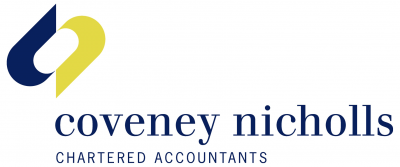Clients often ask us for landlord tax advice to help boost their tax efficiency and rental income. There are many ways to minimise your tax liability as a landlord, so we created this guide to answer some of your most frequent questions.26
Of course, if this article doesn’t answer everything or you need more details, don’t hesitate to get in touch with us! Here’s what you need to know.
Allowable expenses landlords can (and can’t) claim
Allowable expenses are costs that a business or landlord incurs for the purpose of their trade. If you rent out properties as a landlord, you can deduct the cost of your expenses to reduce your taxable profit, resulting in a lower tax liability.
Private landlords can claim a wide range of allowable expenses, including business phone costs, stationery, printing, marketing and home office costs. Sector-specific business expenses also include:
- charges related to repairs and maintenance
- letting agent fees
- council tax and utility bills
- landlord insurance.
However, you can’t claim for things such as restoration costs or expenses related to improving a property.
You’ll need to keep accurate business records to maximise your tax savings. The more precise your books are, the easier it’ll be to claim allowable expenses on your self-assessment tax return.
Making the most of cloud accounting software and hiring a professional bookkeeper can help you stay on top of your books throughout the year.
Mortgage interest payments
Although your mortgage interest payments may represent a significant cost to your business, they don’t fully qualify as an allowable expense.
Private landlords used to be able to deduct the entire cost of interest payments on buy-to-let mortgages and other loans. Now, however, you can only claim a tax credit worth 20% of the annual interest payments.
If you’re a basic rate taxpayer, this won’t make much difference to your tax saving — but it can be a whole different story if you fall into the higher rate or additional rate of income tax.
Structuring your rental business
There’s no one way to be a landlord. The two most common ways to structure a rental business are operating as a private landlord and paying income tax on the profits, or renting properties through a limited company and paying corporation tax instead.
It is worth remembering that you’ll still need to pay income tax if you take a salary from your limited company.
Many landlords set up limited companies to take advantage of more generous tax-saving opportunities. For example, you can claim mortgage interest payments as an allowable expense in your corporation tax return.
If you have an extensive property portfolio or you’re a high earner, incorporation is worth thinking about. However, setting up and running a company can be complicated, so we recommend seeking expert landlord tax advice before making significant structural changes.
Other allowances and reliefs for landlords
Beyond claiming expenses and incorporating your business, there are a few other ways to reduce your tax liability as a private landlord.
While certain household items such as furniture, furnishings and white goods are considered capital expenses, residential landlords can still claim a deduction for replacing domestic items.
Many individuals who let out properties are eligible for a tax-free property allowance worth up to £1,000 each tax year. If you own a rental property jointly with a business partner or spouse, each individual can claim the full amount on their tax returns.
However, if you claim property allowance, you won’t be able to claim your business expenses, so the right decision will depend on your circumstances.
Want to know more? Get in touch to learn how our landlord tax advice can help you boost your rental income.

